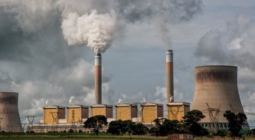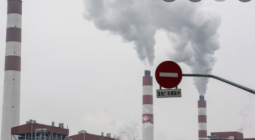Why activists fear little-known treaty could slow fossil fuel phase-out

Vital rulings on the world’s energy future are being made behind closed doors and others may be unknown
The energy charter treaty (ECT) was signed in 1994 to protect the interests of western investors pouring money into the oil- and gas-rich nations of the former Soviet Union. Entering into force in 1998, the treaty generated few cases and even less attention.
That changed in 2014 when investors in the energy firm Yukos were awarded a record $50bn payout after a tribunal found that Vladimir Putin’s government had expropriated their assets to prevent Yukos’s then chief executive, Mikhail Khodorkovsky, from entering politics. The European court of human rights reached a similar verdict in the same week.
Khodorkovsky was arrested at gunpoint in 2003 and spent a decade in a Siberian jail on charges widely seen as politically motivated. He was not party to either compensation claim. The Russian government, which never completed its ratification of the ECT, is yet to compensate investors.
While the Yukos case grabbed attention, damages sought and awarded under the ECT are usually much smaller.
Most of the ECT’s 54 members are in Europe, the Balkans and central Asia, although Turkey, Japan and Australia are also among the signatories. The EU used to champion the treaty but increasingly finds it problematic.
During the first 15 years of the treaty, 89% of cases involved companies suing governments in central and eastern Europe and central Asia. But that has shifted: since 2014 more than two-thirds (68%) of ECT cases concern EU companies suing EU governments. Nearly one-third of cases involve Spain, as investors seek compensation for a change in renewable energy subsidies enacted in 2013.
The EU’s top court ruled in 2018 that arbitration clauses common to 200 investment agreements, including the ECT, were not applicable in intra-EU disputes. But the legal implications are unclear and activists remain fearful that the ECT could delay the phase-out of fossil fuels, threatening goals to limit global heating.
While the ECT secretariat highlights the public information on its website, critics say the system is a black box. Hearings happen in private and investors are not obliged to reveal the damages they are seeking. The court has decided in favour of the investor in 49% of cases, and in favour of the defending state in 39% of cases, according to the Transnational Institute. All of these rulings are made behind closed doors.
But other vital cases on the world’s energy future may be completely unknown. The ECT secretariat in Brussels has counted 142 cases under the treaty since the first in 2001, but the true number is certainly higher. Investors have no obligation to disclose the existence of a case, even to the ECT secretariat.
3 November 2021
The Guardian





